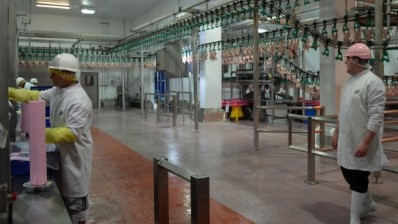Repetitive jobs causing illness on shop floor

Responding to the latest Health & Safety Executive (HSE) statistics for 2013/14, the British Safety Council (BSC), while welcoming the continuing fall in the number of fatal injuries in the workplace, expressed concern about the upward trend in the number of new work-related ill health cases.
The latest figures suggest that 1.2M working people suffer from a work-related illness. Stress, anxiety and depression and musculoskeletal disorders (MSDs) – often caused by repetitive manual operations, such as those carried out in the food processing sector – continue to be the biggest causes of work-related ill health. They account for almost 20M working days lost each year, costing society an estimated £8.6bn.
No improvement
“While we welcome the continuing improvement taking place in preventing injuries in our workplaces we are concerned that the 2013/14 report shows no improvement in reducing work-related ill health occurrences,” said BSC chief executive Alex Botha.
“The focus for many years has been on safety. With some two million people suffering from a work-related illness – and with over half a million new cases reported in 2013/14 – it is clear we need to change our thinking and focus in order to tackle the root cause.”
Botha added: “What was clear is that we have the solutions to tackle work-related illness but are not applying them as we should.”
According to the HSE, the average number of days lost per case of work-related stress, depression or anxiety is 23 and 16 for MSDs.
“What we’ve seen is that in tackling occupational health, a lot can be learnt from the ‘safety’ landscape,” said Botha. “So often we see that it is about clear leadership, effective communication, appropriate training, good measurement and management in a sense, health can be managed ‘like safety’. And the business case is there to support the value of such investments.”
500,000 people
MSDs are the most common occupational illness in Britain, affecting over 500,000 people a year. Nearly half of these illnesses are joint injuries and repetitive strain injuries of various sorts affecting the upper limbs.
To support employers, health and safety professionals and inspectors with risk assessments of repetitive work, the Health and Safety Laboratory and Health and Safety Executive have developed the Assessment of Repetitive Tasks (ART) tool.
Launched in Spring 2010, the ART tool is used to assess the frequent handling of light loads or other repetitive tasks that can contribute to upper limb disorders.















